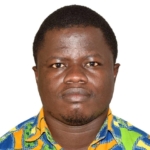
The Director of Research and Innovation at the Africa Sustainable Energy Centre (ASEC), Dr. Elvis Twumasi, has urged African experts to set aside fears about Artificial Intelligence (AI) taking over jobs and instead focus on leveraging the technology to create opportunities that will drive economic growth, particularly in the informal sector.
Speaking at the AI for Africa Workshop, Dr. Twumasi highlighted that while AI has, in recent years, demonstrated its power to make knowledge accessible to everyone, whether educated or not, this rapid advancement has also fueled fears of job losses.
He stressed that rather than being intimidated by AI, Africa should view it as a tool to provide real, practical solutions, especially for people in villages and rural areas with limited access to technology and the internet.
“The informal sector in Africa is very large, and we realise that connectivity is an issue,” he said. “So, one thing is that as AI experts, as most of us are, we can look at how we could start compressing some of these AI ideas to start working offline.
“So we could have an AI app for farmers, where it’s on their phone, that they could communicate with while they are on the farm without connectivity. We could have an AI app that helps farmers even detect whether they have diseases in their plants and all that without connectivity,” Dr. Twumasi explained.
He noted that Africa has often been a consumer of foreign technology, waiting for other continents to innovate first. However, he emphasised that this trend is changing, as more Africans are now equipped with the skills to develop new AI-driven solutions locally.
“And there are various technologies that are coming up that we have the capacity to quantise some of these ideas and do this edge compression and all that, and put them on phones that could be used even remotely,” he said.
Dr. Twumasi further pointed to emerging initiatives across Africa aimed at extending AI to underserved communities lacking reliable internet access.
“I believe that we have opportunities that we could look at in the infrastructure end and in the connectivity side, trying to resolve all the various issues, so that we could develop as Africans,” he added.